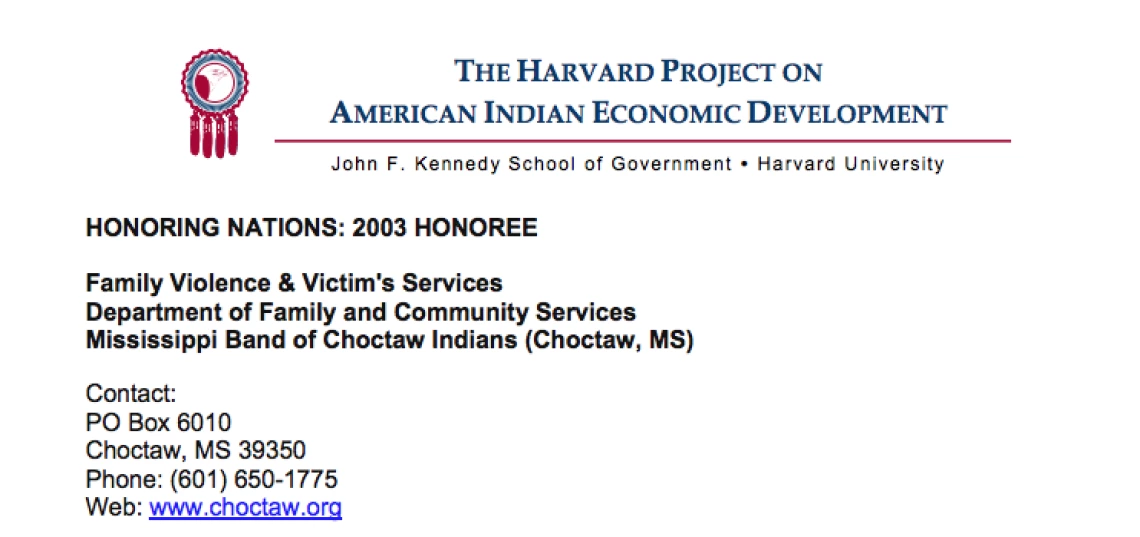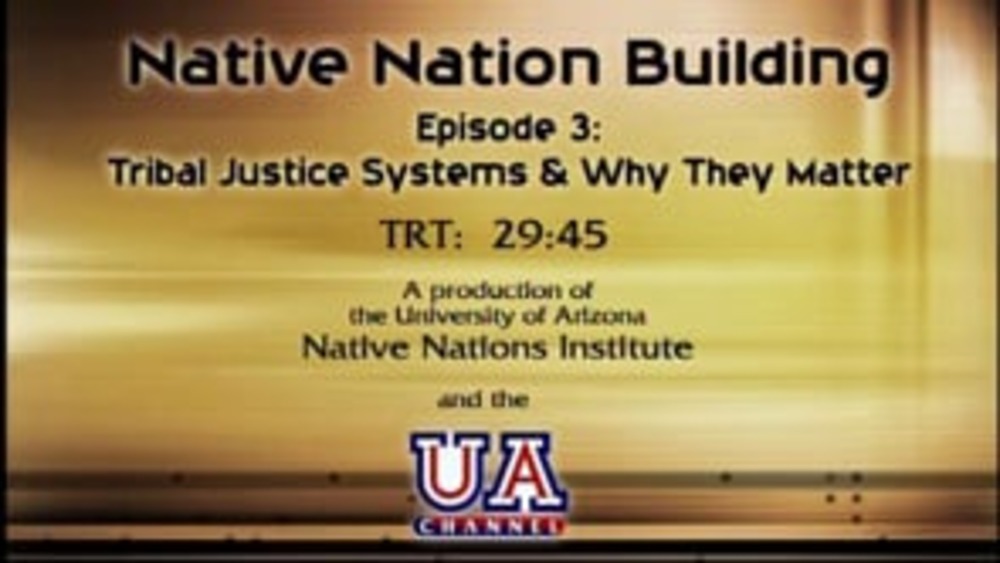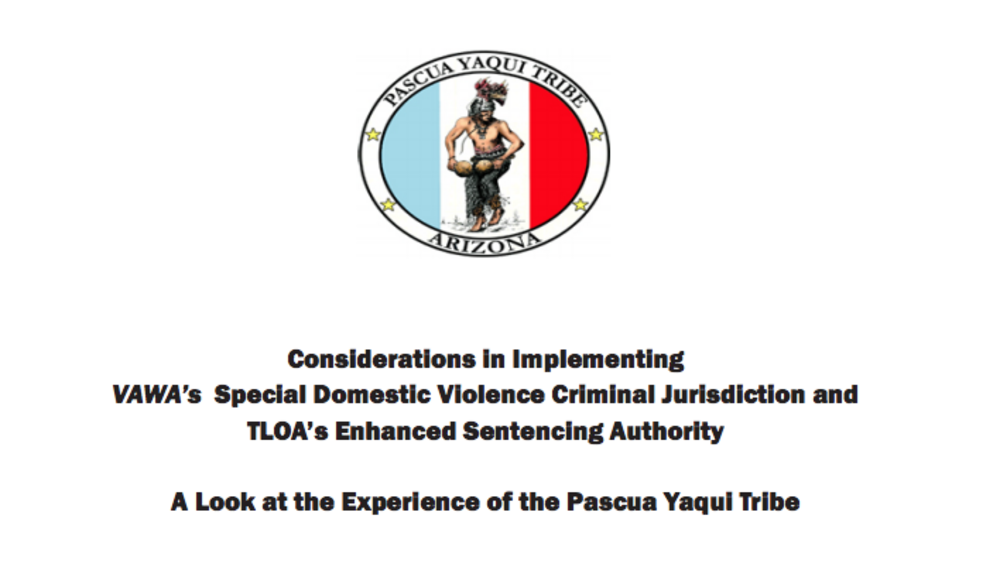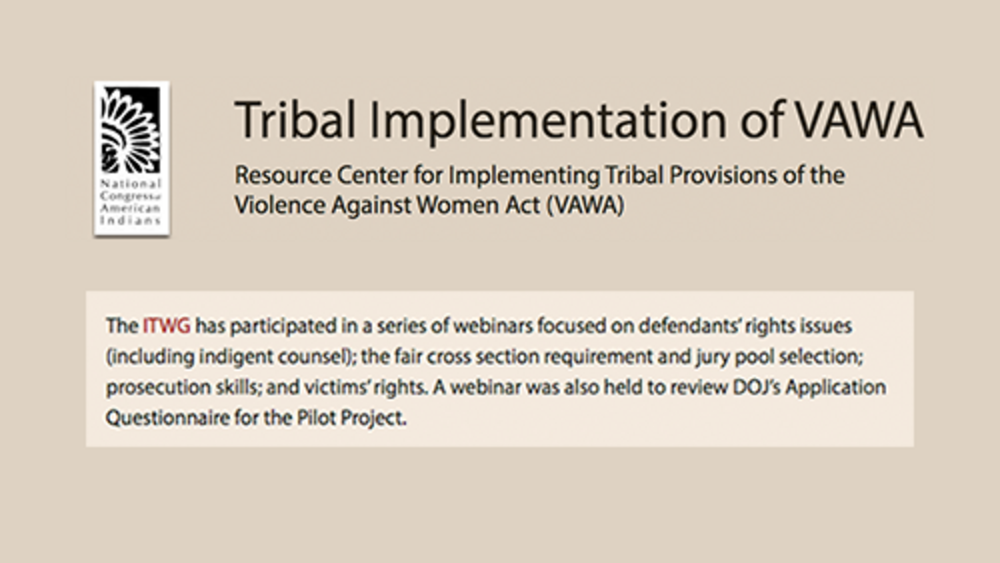Addressing the often-stigmatized issues of domestic violence, sexual assault, stalking, and elder abuse, the Family Violence and Victim’s Services (FVVS) provides comprehensive resources for victims such as access to legal services, counseling, and therapy. In addition, FVVS drafted a strict tribal domestic criminal code and continues to administer re-education programs for batterers, educational campaigns, and training seminars for law enforcement, security, and the tribal judiciary.
Additional Information
"Family Violence and Victim's Services." Honoring Nations: 2003 Honoree. The Harvard Project on American Indian Economic Development, John F. Kennedy School of Government, Harvard University. Cambridge, Massachusetts. 2004. Report.




